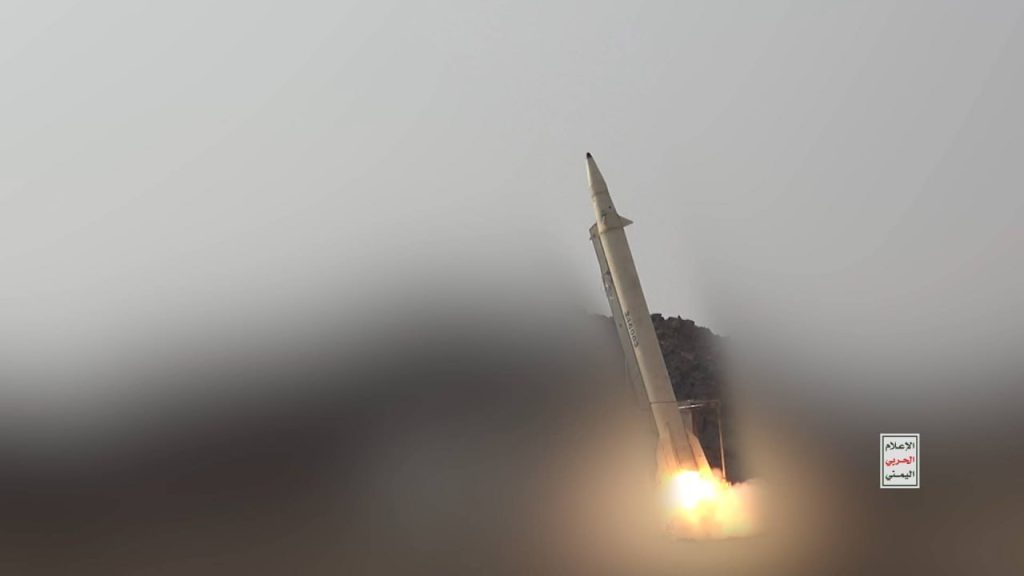American and British media outlets have increasingly expressed their growing concerns regarding the development of Yemeni armed forces' capabilities and tactics in naval warfare. The reports highlight the significant impact of Yemeni operations in supporting Gaza both militarily and economically. Experts and industry leaders assert that Yemen has demonstrated its ability to establish a new reality at sea that the American-led coalition and its European partners are unable to alter.
Two days ago, the British maritime news site "Seatrade Maritime News" published a report emphasizing that Yemeni naval tactics are "taking a new and dangerous turn." Despite ongoing attacks on Yemen by coalition forces led by the United States, the Yemeni threat continues to grow rather than diminish, with Yemeni attacks evolving and their operational area expanding.
The report pointed out that the most alarming aspect of this war of attrition is the recent development of Yemeni tactics, particularly the use of unmanned boats. These boats are difficult to detect and can be used for intelligence gathering and enemy surveillance. They are inexpensive to build, fast, and can target weak points on ships while carrying a larger payload of weapons than manned boats.
Maritime security firm "Dryad Global" stated that despite the coalition's advanced weaponry, its strikes on Yemen have largely been ineffective. Yemen has developed a robust infrastructure for weapon manufacturing within the country. The Yemeni armed forces are expanding and improving their use of unmanned boats, following their success in sinking the ship "Tutor." The basic design of these autonomous ships offers the advantage of not relying on satellite communications, enabling them to launch attacks without risking Yemeni fighters' lives.
The report confirmed that the targeted ships lack defenses against such attacks. This assessment was echoed by another report from Reuters last week, which also noted that targeted ships "do not have adequate defenses against this complex shift in Yemeni tactics."
Reuters quoted Dimitris Maniatis, CEO of Maritime Risk Management company "Maritime Risk Services," stating, "These surface boats loaded with explosives represent an advanced shift in asymmetric warfare tactics, enabling the Houthis (Ansar Allah) to strike accurately and from a distance, thereby reducing their exposure to counterattacks."
Reuters also quoted Monroe Anderson, Chief Operations Officer at "Vessel Protect," a subsidiary of British insurance company "Pen Underwriting," which specializes in marine war risk insurance. Anderson stated, "Unmanned surface vessels strike ships at the waterline, and combined with the large warhead, they can cause significant water ingress and damage control problems."
The report mentioned another emerging tactic where some autonomous warships are equipped with decoys, creating psychological confusion among sailors, according to an official from the Greek maritime security company "Diabolos."
Reuters reported that insurance premiums for ships associated with the Israeli, American, and British adversaries continue to rise due to the escalating and intensifying Yemeni operations. According to sources in the marine insurance sector, "additional war risk premiums for ships passing through the Red Sea have reached 0.7% of the ship's value in recent days," while "insurance rates for this passage had reached around 1% of the ship's value earlier this year."
The report added that this increase adds hundreds of thousands of dollars in additional costs, predicting that "recent threats may push insurance rates higher in the coming weeks."
The increase in insurance costs does not apply to all ships crossing the Red Sea. Reuters sources confirmed that "insurance rates for Chinese ships, which are seen as unrelated to Israel or the United States, remained around 0.2% to 0.3%."
The CEO of the shipping giant "Maersk," which has significant ties to the Israeli and American adversaries, recently acknowledged the failure of the American-British coalition to limit Yemeni operations. He stated that "the call for governments to enhance their presence in the Red Sea has proven unsuccessful," affirming that the company's ships will no longer pass through the area of Yemeni attacks, and shipping costs will continue to rise if the situation remains unchanged.







